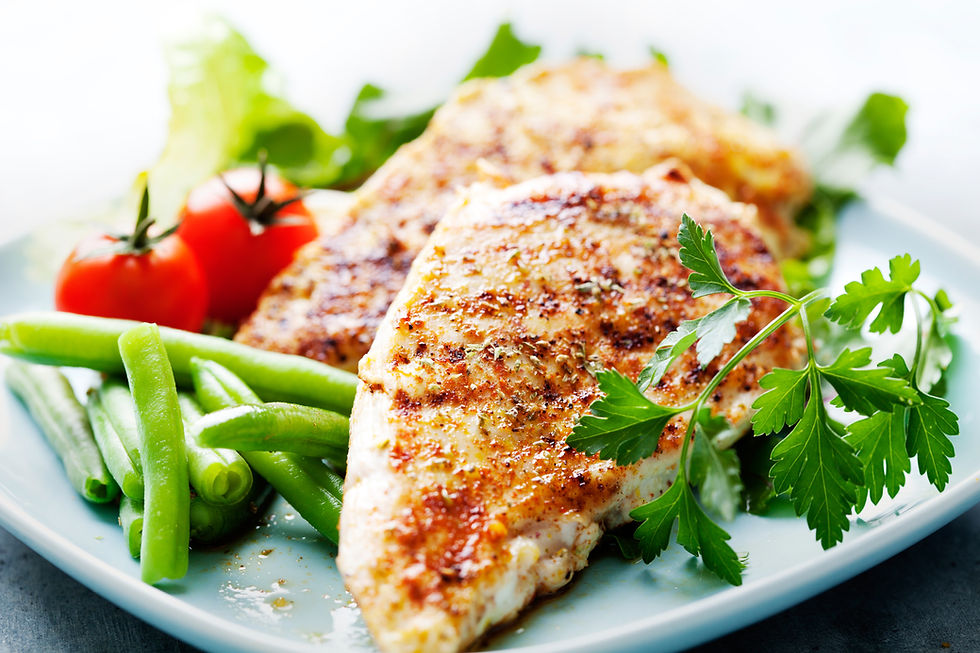How to portion control
- Louise Weir

- Dec 16, 2019
- 2 min read

Portion control is a great way to reduce calories without any real effort into making big diet changes and without worrying about counting calories on a daily bases.
It also gives you a better awareness of your meals overall and if they are balanced with good nutritional value or if you are having too much of a particular food group.
TIP ONE
keep it simple to start with, there are many different ways you can portion control and it does not mean you have to count every grain down to the last gram. Take a simplistic approach. Serve your breakfast/lunch/dinner as you would usually and then take one quarter off your plate. This will reduce your calories by 50-150 calories.
TIP TWO
Try a portion control plate. Such a simple and effective tool which will help you make sure you are having the right amount of each food group here is a link if you would like a portion control plate https://www.amazon.co.uk/CHINA-PLATE-Healthy-Portion-Plate/dp/B015PU8RO0/ref=asc_df_B015PU8RO0/?tag=googshopuk-21&linkCode=df0&hvadid=235187545902&hvpos=1o4&hvnetw=g&hvrand=14221138273358176275&hvpone=&hvptwo=&hvqmt=&hvdev=c&hvdvcmdl=&hvlocint=&hvlocphy=9046498&hvtargid=aud-543273805630:pla-420894891054&psc=1
You can also turn your regular plates into portion control plates by using a guide. The picture shows how much protein, fruit, vegetables, healthy grains and dairy you should eat at mealtime. You can use the image at home to remind yourself and teach your kids how to prepare and eat healthy meals.

TIP THREE
Measure your cereal in a cup
When is the last time you measured your cereal before pouring it into a bowl?
For some cereals, one cup is the recommended serving size. But the American Diabetes Association lists 3/4 cup as a suggested serving. If you pour your cereal straight into the bowl, chances are good you are eating up to two servings. And if you refill the bowl (as most of us do) you may be eating 3-4 servings.
TIP FOUR

Use the palm of your hand to measure chicken
Lean protein is healthy right? Not if you eat too much of it. If you are eating a whole chicken breast for dinner, you might be eating too much.
The recommended single portion of chicken is 3-4 ounces, about the size of a deck of playing cards. Some people use the palm of their hand as a guide. Depending on the vendor, some chicken breasts are twice or even three times the size of a recommended serving. The calorie in chicken breast can add up and ruin your diet.
TIP FIVE
watch out for sneaky labels Portion size is the amount of a specific food that you actually eat. It is often larger or smaller than the serving size on the nutrition label. If you confuse serving size with portion size, your calorie counts will likely be way off and may undermine your weight loss goals







Comments